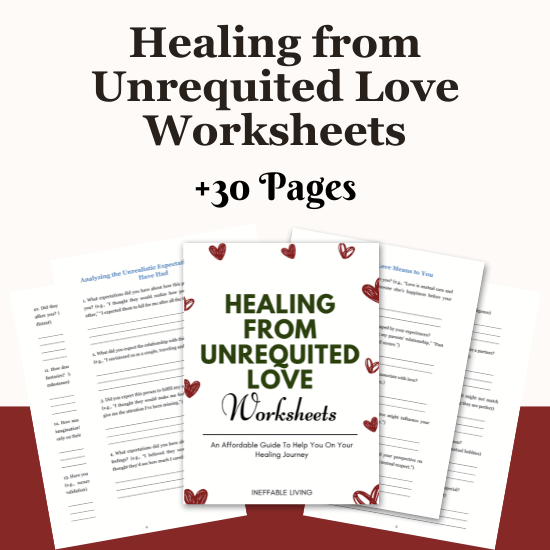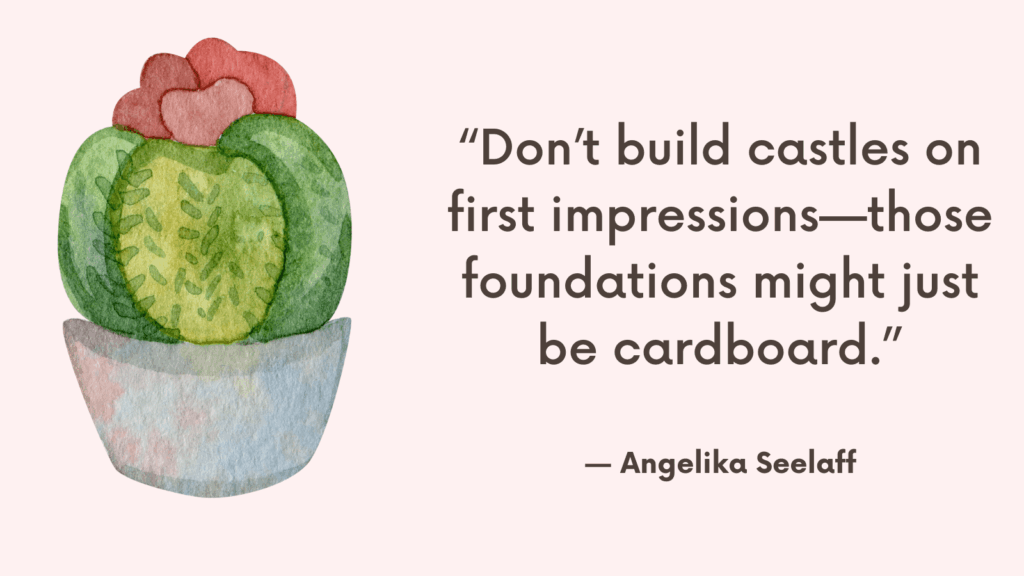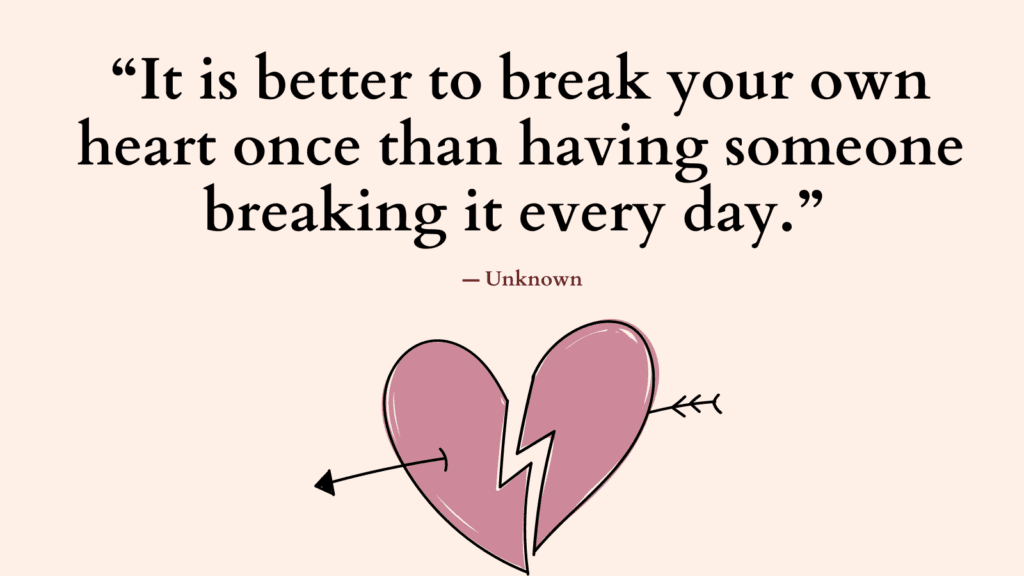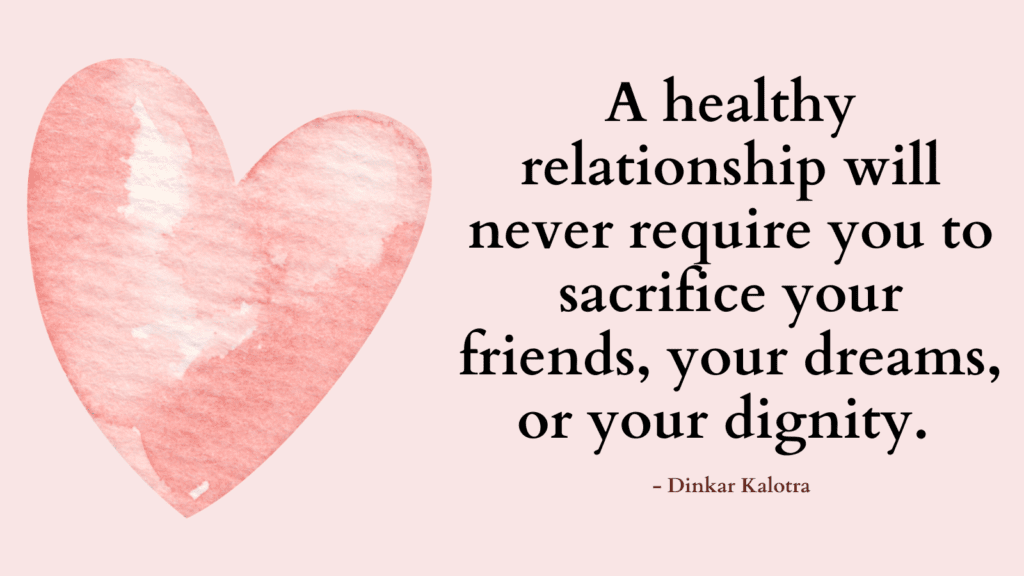Unreciprocated feelings can consume your thoughts, your time, and your emotional energy. When someone doesn’t feel the same way—yet your mind keeps circling back to them—it’s more than just heartbreak. It becomes rumination, an obsessive loop of “what ifs,” imagined scenarios, and self-questioning. You don’t choose to feel this way—but you can choose how you respond to those feelings.
- When You Can’t Let Go of a Story That Never Got to Begin
- Why Your Brain Keeps Replaying It
- Emotional Hunger vs. Genuine Connection
- The Fantasy Is What Hurts the Most
- The Role of Emotional Reenactment
- Your Pain Is Valid—But You’re Allowed to Move Forward
- How to Stop Ruminating Over Someone Who Doesn’t Feel the Same?
- Conclusion
When You Can’t Let Go of a Story That Never Got to Begin
There’s a unique ache that comes from emotionally investing in someone who doesn’t return the feeling. It’s not just rejection—it’s a loss of the imagined future, the version of yourself you were around them, and the connection you were hoping to build. But even when the message is clear—they’re not interested, not available, or not reciprocating—you may still find your mind circling around them on repeat.
This isn’t just stubbornness or denial. It’s rumination. A symptom of emotional looping that can be deeply tied to trauma, attachment wounds, and unresolved grief.
Related: Top 10 Reasons You Keep Falling For Unavailable People
Why Your Brain Keeps Replaying It
Rumination is the brain’s way of trying to solve something it doesn’t understand. Why didn’t they feel the same? What did I do wrong? What if I had said something different? These questions become mental hooks, keeping you tethered to a person who’s already emotionally walked away.
Underneath the thoughts, there’s often an emotional story:
If I can understand this, I can stop hurting.
If I can figure out what went wrong, I can fix it.
If I keep thinking about them, maybe they’ll come back.
But the truth is, ruminating doesn’t bring resolution. It just deepens the pain.
Emotional Hunger vs. Genuine Connection
The person you can’t stop thinking about might not even be someone you deeply knew. In many cases, the connection was more potential than reality. Yet the emotional hunger they awakened—attention, validation, chemistry—can become intoxicating. It’s easy to confuse this hunger for love, especially if emotional inconsistency feels familiar.
The harder it is to let go, the more likely it’s not just about them. It’s about what they represent: hope, healing, redemption, proof that you’re lovable.
Related: How to Stop Attracting One-Sided Relationships?
The Fantasy Is What Hurts the Most
You might be grieving the version of the story that never got to happen. The imaginary relationship that felt like it could have happened if things were different. But loving someone in your mind is not the same as being loved in return. Fantasy isn’t inherently harmful—but when it keeps you stuck in a cycle of emotional longing, it blocks real healing and connection.
Recognizing the difference between a real bond and an emotional projection is a crucial step in letting go.
The Role of Emotional Reenactment
If you grew up in an environment where love was unpredictable, conditional, or withheld, you may unconsciously seek similar emotional patterns in adulthood. Wanting someone who doesn’t want you back can mirror childhood dynamics—trying to earn affection, proving your worth, chasing someone who remains emotionally distant.
In this sense, rumination is not just about them. It’s an attempt to resolve something much older.
Your Pain Is Valid—But You’re Allowed to Move Forward
It’s okay to feel hurt. It’s okay to grieve. What matters is not judging yourself for having emotions—but recognizing when your emotional world is orbiting someone who isn’t choosing you.
Letting go doesn’t mean you’re weak. It means you’re strong enough to choose your own peace over their silence.
Related: Dating With Intention: What Does It Mean & How To Do It?
How to Stop Ruminating Over Someone Who Doesn’t Feel the Same?
Here’s how to stop ruminating and begin your emotional release—step by step.
1. Accept That Closure Doesn’t Come From Clarity—It Comes From Choice
Your mind may keep searching for a better explanation: Why didn’t they choose me? What did I do wrong? Could I have changed the outcome?
But rumination is not the path to peace—it’s the mind’s attempt to control something it cannot.
Let yourself say:
“I may never get the perfect answer. But I can choose to stop reopening a door that won’t open back.”
Closure isn’t something they give you. It’s something you claim.
2. Separate the Fantasy From the Reality
Often, what you’re ruminating over isn’t the person—but the idea of them. You may be holding on to who you hoped they were, or what the relationship could’ve been—not what actually happened.
Ask yourself:
- What version of them am I missing: the real person or the imagined one?
- What did I believe this connection would finally give me—validation, love, safety?
Grounding yourself in the truth—even if it hurts—frees you from the emotional illusion.
Related: Relationship Red Flags Quiz
3. Notice When Rumination Shows Up—And Interrupt the Pattern
Rumination has triggers: silence, loneliness, social media, old music, night-time thoughts. You can’t always prevent them—but you can catch them earlier.
Try this:
- Name it out loud: “I’m ruminating right now.”
- Breathe deeply and shift your physical state—stand, stretch, or splash cold water
- Redirect your attention: read something absorbing, walk outside, journal your thoughts instead of spinning them
The goal isn’t to suppress the thought—but to step out of the loop it creates.
4. Give Your Obsession a Contained Place to Live
Trying not to think about someone often makes you think of them even more. Instead, try giving the rumination a safe, structured outlet—so your mind doesn’t feel like it has to fight or feed the obsession constantly.
Create a daily ritual like:
- A “rumination journal” where you let yourself write about them for 10 minutes—then close it
- A 15-minute “grief window” where you can feel it fully, then return to your day
- Lighting a candle, acknowledging the longing, then extinguishing it with intention
Containment builds emotional boundaries inside your mind.
Related: How to Set Standards Without Feeling “Too Picky”?
5. Ask What the Obsession Is Distracting You From
Sometimes we fixate on unavailable people because it distracts us from a deeper pain—our fear of being alone, unworthy, or unlovable. Rumination becomes a way to avoid sitting with our own emotional needs.
Ask yourself gently:
- What is this obsession helping me avoid?
- What part of me feels safest in longing instead of receiving?
- If I weren’t focused on them, what would I have to feel?
Getting curious instead of self-critical helps you meet the real wound underneath.
6. Take Back Control of Your Environment
If you’re still following them, checking their posts, or revisiting shared spaces, your mind stays emotionally hooked. To break the loop, you need to remove the constant reminders—even when it’s hard.
Clean your emotional space by:
- Unfollowing or muting them on all platforms
- Removing items, messages, or photos that reopen the attachment
- Creating new physical or digital routines to shift the association
This isn’t about erasing them—it’s about reclaiming your energy.
7. Give Your Brain a New Source of Reward
Rumination often gives your brain a hit of emotional intensity—even if it’s painful. You need to replace that source of stimulation with something nourishing, not just distracting.
Examples:
- Start a creative project that feels absorbing
- Invest energy into a hobby or goal that builds your confidence
- Reconnect with people who mirror your worth and value
The more your life becomes full and emotionally rich, the less space rumination has to grow.
Related: What Healthy Chemistry Actually Feels Like (Hint: It’s Not Obsession)?
8. Reclaim Your Self-Worth From Their Indifference
Someone else’s inability to love you the way you wanted does not mean you’re unworthy of that love. But your brain may be stuck trying to win them as proof that you are enough.
Say to yourself daily:
“I don’t need to be chosen by someone who couldn’t see me. I choose myself.”
Self-worth is what ends the cycle—not more analysis or effort.

Conclusion
Letting go of someone who doesn’t feel the same isn’t just about losing them—it’s about releasing the version of you that believed you needed their love to feel complete. Healing is not about forgetting them—it’s about freeing yourself from the emotional orbit that kept you small. When you stop trying to be chosen, you begin to choose yourself. And that is when your energy returns.



